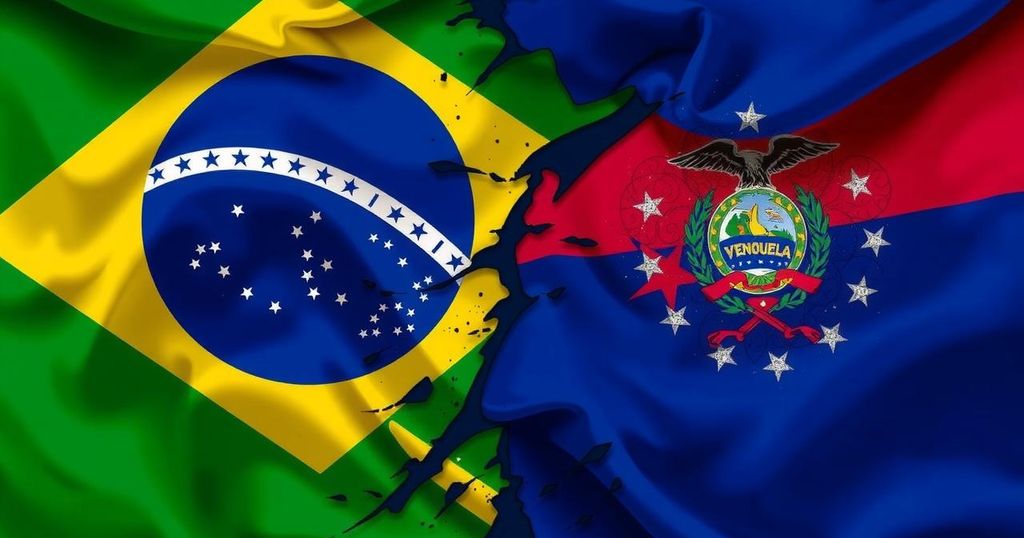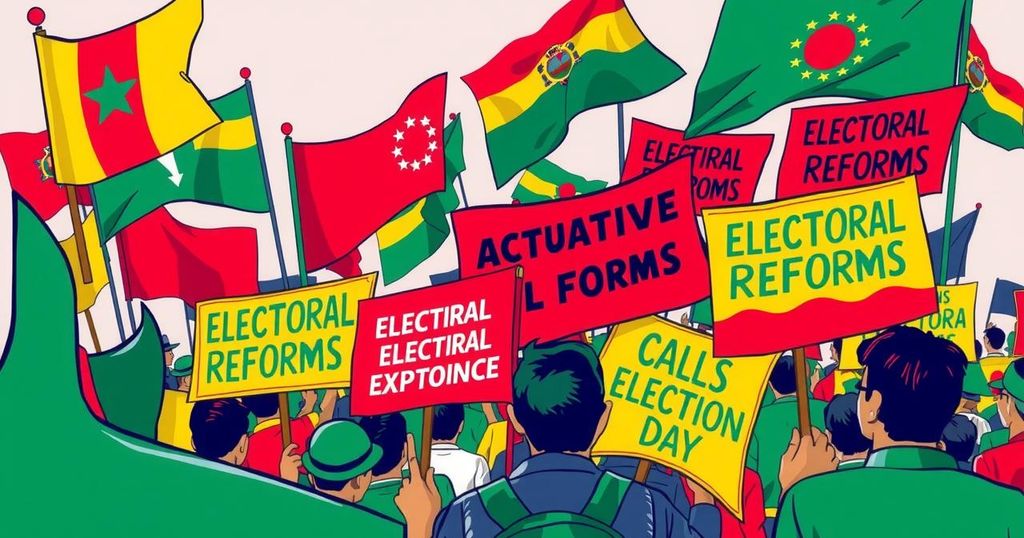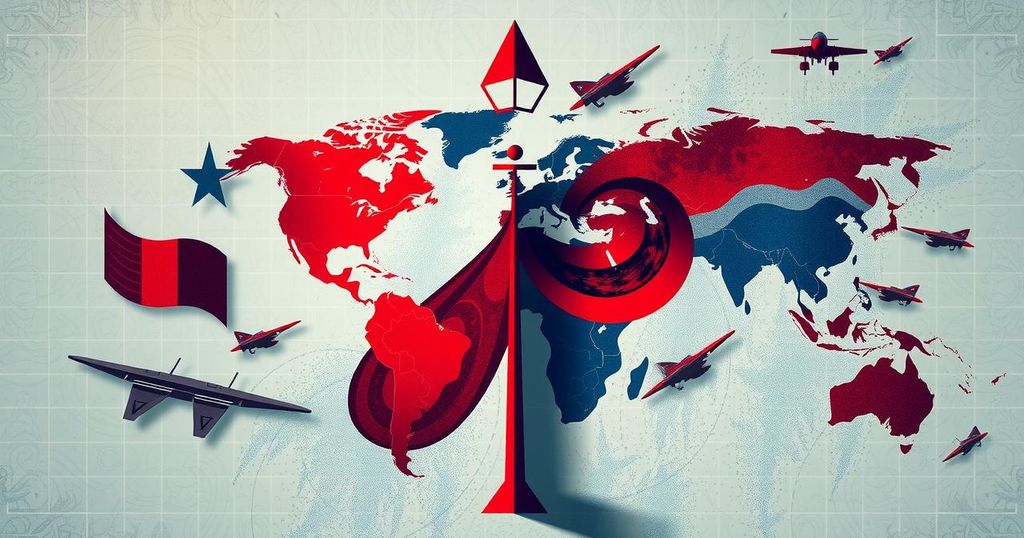Politics
ASSOCIATED PRESS, BRAZIL, BRAZILIAN FOREIGN MINISTRY, BRICS, CE, CORRUPTION, CUBA, DEMOCRACY, EUROPE/ASIA, FOREIGN MINISTRY, FOREIGN POLICY, LU, LUIZ INÁCIO LULA DA SILVA, LULA, MINISTRY, NICOLÁS MADURO, NORTH AMERICA, PAULO, POLITICAL PERSECUTION, RUSSIA, SOUTH AMERICA, TRADE RELATIONS, VENEZUELA
Jamal Walker
0 Comments
Escalating Tensions: Brazil Responds to Venezuelan Rhetoric and Criticism
Brazil has officially acknowledged tensions with Venezuela, criticizing Venezuelan authorities for their aggressive rhetoric and personal attacks against Brazilian officials. The situation has grown increasingly complex, with disputes over electoral integrity and Brazil’s opposition to Venezuela’s inclusion in BRICS, leading to a call for diplomatic resolution amid heightened tensions.
The Brazilian government has expressed concern regarding the deteriorating relations with Venezuela, particularly criticizing what it deems an “offensive tone” adopted by Venezuelan authorities. Over the past days, tensions escalated after Venezuelan officials began targeting Brazilian Foreign Ministry representatives and President Luiz Inácio Lula da Silva personally. Brazil’s Foreign Ministry stated that the choice of personal and aggressive rhetoric by Venezuelan officials does not correspond to Brazil’s respectful approach towards Venezuela. These tensions intensified following comments from a senior Brazilian adviser who noted that Brazil had not endorsed Venezuela’s bid to join the BRICS bloc of developing nations during a recent summit. Concurrently, Brazil and Venezuela are entangled in disputes regarding the legitimacy of Venezuela’s recent presidential election, with Brazil advocating for electoral transparency—an appeal Venezuelan officials have rebuffed. In response to the growing altercations, Venezuela’s Foreign Ministry summoned Brazil’s chargé d’affaires to express discontent with Brazil’s statements, accusing former Brazilian Foreign Minister Celso Amorim of acting as an “American imperialism messenger.” The Brazilian Foreign Ministry, in a rare overt response to Venezuela’s declarations, emphasized its commitment to maintaining non-interventionist policies and mutual respect between nations. Although Brazil’s initial diplomatic response was to avoid escalating tensions, this approach shifted after Venezuelan police shared provocative imagery implying threats towards Brazil. Amorim acknowledged the ongoing discomfort between the countries, asserting that the resolution of issues would depend on actions from Venezuela. The current diplomatic climate remains precarious, characterized by deep skepticism and allegations from both parties, particularly in light of Brazil’s stance against Venezuela’s inclusion in the BRICS bloc due to perceived inadequacies in democratic representation. This complicated landscape of bilateral relations has been exacerbated by accusations of interventionism and ideologically charged rhetoric from both sides, reflecting broader geopolitical tensions in the region and illustrating the challenges of diplomatic engagement in the face of increasing hostility.
Brazil’s diplomatic position towards Venezuela has historically been framed by a commitment to non-intervention and respect for sovereignty. However, the recent escalation in tensions highlights a shift as Brazil reacts to personal attacks from Venezuelan officials, particularly following controversial statements regarding Venezuela’s electoral integrity. The backdrop involves Brazil’s participation in international dynamics, including its role within the BRICS economic bloc, where debates over membership and influence are ongoing. Relations between Brazil and Venezuela have been further complicated by Hugo Chávez’s historical leadership and Nicolás Maduro’s controversial governance, marked by accusations of undemocratic practices and human rights violations, against a backdrop of the region’s complex political alliances.
In summary, the escalating tensions between Brazil and Venezuela, characterized by personal attacks and accusations of interventionism, depict a precarious diplomatic situation. Brazil’s concern over Venezuela’s political rhetoric and its insistence on respect for democratic processes highlight the challenges facing both nations as they navigate their relationship. The controversy surrounding Venezuela’s bid for BRICS membership further exacerbates these tensions, underscoring the need for constructive dialogue and ongoing engagement in order to stabilize relations going forward.
Original Source: abcnews.go.com




Post Comment